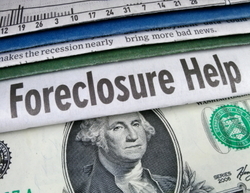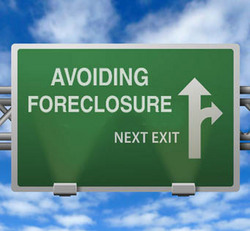 If you are one of the many people who walked away from your home before filing for bankruptcy, you might still owe the bank some cash. Generally, when you walk away from your mortgage, the bank will foreclose on your home, sell it, and likely take the loss on that sale (the selling price is usually lower than what you might have owed the bank).
If you are one of the many people who walked away from your home before filing for bankruptcy, you might still owe the bank some cash. Generally, when you walk away from your mortgage, the bank will foreclose on your home, sell it, and likely take the loss on that sale (the selling price is usually lower than what you might have owed the bank).
However, Jacksonville Bankruptcy Lawyers are seeing an increase in what is called a “deficiency judgment.” Banks might ask for a deficiency judgment, which is essentially a lawsuit filed by the bank against you. It means the bank wants you to pay the difference between what you owed on the home and what it sold for.
For example, let’s say you walk away from a mortgage that you owe $200,000 on. The bank forecloses on your home and sells it for $50,000. The bank might then seek a deficiency judgment. If the court grants the judgment, you’ll be on the hook for that $150,000 + interest.
 Jacksonville Bankruptcy Lawyer Blog
Jacksonville Bankruptcy Lawyer Blog



 Under a chapter 7 bankruptcy, you can keep your home by reaffirming the debt. This means that you will, through a Statement of Intention, tell the creditor that you wish to keep the property and will continue to be liable for the loan.
Under a chapter 7 bankruptcy, you can keep your home by reaffirming the debt. This means that you will, through a Statement of Intention, tell the creditor that you wish to keep the property and will continue to be liable for the loan. Yes it is possible with a Florida bankruptcy to keep one property but not the other. When a bankruptcy is filed, you have the option to keep or surrender secured collateral, including real property. So you can decide, with the help of your
Yes it is possible with a Florida bankruptcy to keep one property but not the other. When a bankruptcy is filed, you have the option to keep or surrender secured collateral, including real property. So you can decide, with the help of your 

 In many cases the answer to this question is yes. Often times homeowners find themselves “underwater” in the home and are afraid that if they surrender their home in satisfaction of their first mortgage their second mortgage lender will pursue a deficiency against them or they will file a form 1099(c) creating tax liabilities for the amount of the second mortgage.
In many cases the answer to this question is yes. Often times homeowners find themselves “underwater” in the home and are afraid that if they surrender their home in satisfaction of their first mortgage their second mortgage lender will pursue a deficiency against them or they will file a form 1099(c) creating tax liabilities for the amount of the second mortgage.